The Botanical Society of Britain and Ireland (BSBI) is launching its updated Plant Atlas 2020 and, as part of this work, has found that more than half of Britain and Ireland’s native plants have declined since the 1950s because of agriculture, climate change and invasive non-native species.
Following extensive research and with the help of thousands of volunteers, the BSBI has recorded 3,445 plant species, of which only 1,692 were native to Britain and Ireland. The remaining plants are non-native species, including invasive species that outcompete native species, harm the environment, our economy and even human health.
Read more on BBC News and view the Plant Atlas 2020 website.
Gardeners can help protect the environment from invasive non-native plants by following simple tips to Be Plant Wise:
- Know what you grow – choose the right plants for your garden, pond, aquarium, and water features. Order your free guide to over 160 plants to use in place of invasive plants by contacting nnss@apha.gov.uk
- Stop the spread – keep your plants in your garden, don’t plant them, or allow them to grow, in the wild.
- Compost with care – dispose of unwanted plants, roots, seeds, and seed heads responsibly. Most plants can be composted or put in your green waste bin.
You can also help researchers to identify potentially invasive garden plants by contributing to Plant Alert, a collaboration between Coventry University and the BSBI.
Find out more about invasive non-native plants and how to prevent their spread.
